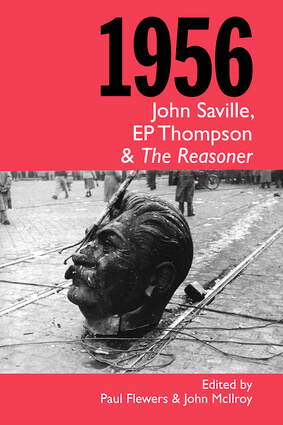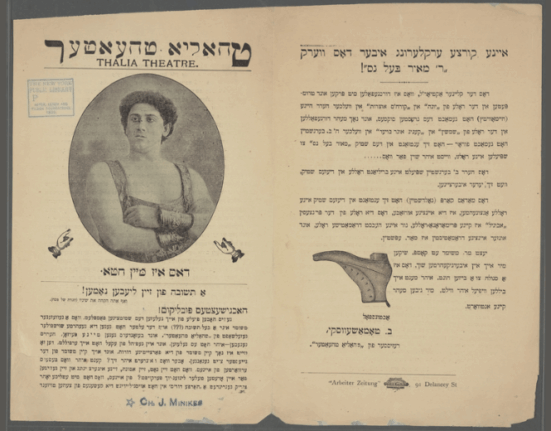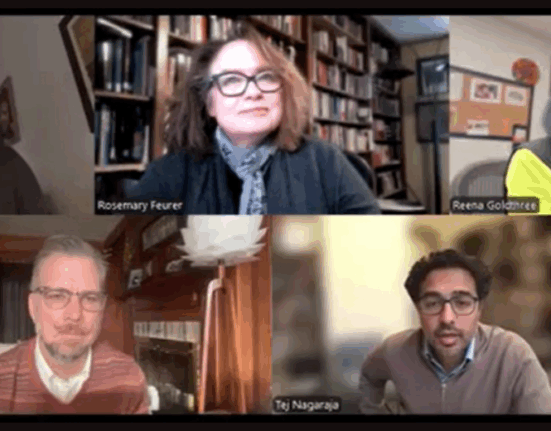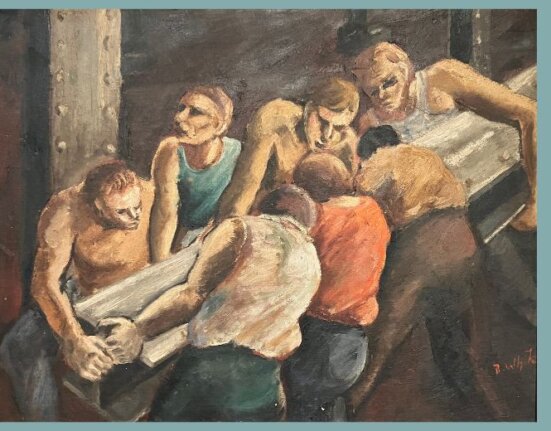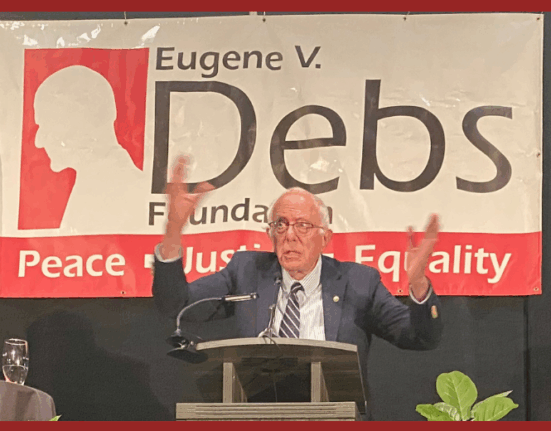Stuart Hall with Bill Schwarz, Familiar Stranger: a Life Between Two Islands. Duke University Press, 2017. 271pp, $29.95 pbk
Stuart Hall, Selected Political Writings: The Great Moving Right Show and Other Essays. Duke University Press, 20917. 360pp, $27.95 pbk
1956: John Saville, E.P. Thompson and The Reasoner, edited by Paul Flewers and John McIlroy. London: Merlin Press, 2017, 432pp., $25 pbk.
Suddenly, it was 1956. The Hungarian Revolution and the Russian occupation. The 20th Soviet Congress and Khruschev’s denunciation of Stalin, with revelations of anti-Semitism. The ferocious political battle within many Communist parties (not so furious in others) for a new direction. Above all and beyond the widespread feelings of disillusionment and despair, the sense that something else, something new, was brewing.
Quite a year, as if history had caught up suddenly, from the 1940s defeat of the Nazis by the Red Army (among other earth-shaking military events), the US deployment of atomic weapons, and the teetering of the old European empires along with the end of the Second World War. Then, despite the Cold War tensions and despite the horrors (from both sides) of the Korean War, there was a certain stasis: one global empire against another. In 1956, things looked very different. The Reasoner, all three issues reprinted in this volume, offered the most astute discussions in the English-language Left anywhere, about what went wrong and what might go right, in the British framework at least. To recover these documents is a great addition to socialist history. The literary style, full of irony and humor, is even better than the arguments, and will bring delight, to many a reader of E.P. Thompson in particular.
Sadly, the alternatives did not appear gloriously promising, or appeared so only briefly. The fracturing of the old Communist paradigm, beset by the moral collapse of Stalinism, seemed to leave the future as uncertain as ever. The Third World dimension in which the West, fresh from the CIA-organized slaughter in Guatemala and with its determination set upon preserving or replacing existing colonialism with its own versions of neocolonialism, did not seem so good, either. If illusions of life within Russia and the East Bloc were badly shaken, never to recover, even when material conditions (like massive new housing construction here and there) improved somewhat, Communist-led movements from South Africa to Vietnam nevertheless often continued to represent the hope for change in the best organized of anti-colonial and anti-racist forces. Meanwhile, the rise of the Non-Aligned Movement, led more than symbolically by Marshal Tito, setting his own course between the East and West blocs, symbolized the uncertainties. Had the West won the moral advantage on a global scale or, perhaps, were things tilting in a whole new way?
Stuart Hall, a young Jamaican coming to the UK about this time, part of a regional new sensibility that would become a movement of a new sort, offers a case in point. Familiar Stranger, a sort of oral history or dialogue of uncompleted manuscript adeptly put into shape by editor Bill Schwarz, has lots to tell us about the New Left. A member of the brown-skin semi-elite, Hall grew up distant from the black-skinned lower class and almost as distant from the white elites of the island, trapped in a group that could not speak of its own oppression, instead “marrying up” to whites or marrying ambitious black professionals from below. A grappling to articulate the deeper meanings for its own milieu would prompt vast experimentation, perhaps even more notable in music than in the many notable additions to prose or poetry. Frustrated by the limitations and making his escape to the UK, the brilliant young intellectual plunged into culture and politics.
Hall found a British new left hardly in formation, and here we turn back to the curious volume 1956 and The Reasoner as the voice of the dissidents from the Communist Party of Great Britain. Hall would be among them but not of them. Indeed, he seemed to destined to break most sharply with those he also admired, because the contemporary effort to reclaim the history of the working class came precisely as the old class cultures grew shaky, nowhere more than in the districts where nonwhite teens struggled to find themselves.
The break from the Communist movement had impressive intellectual weight precisely because the prime mover happened to be E.P. Thompson, grand historian and orator, biographer of British socialist William Morris and soon to be the author of The Making of the English Working Class, rivaled only by W.E.B. Du Bois’ Black Reconstruction and C.L.R. James’ Black Jacobins as the three greatest Marxist historical works in the English language even now, all these decades later. Thompson was also a storied orator of the Campaign for Nuclear Disarmament (CND), the greatest British Left mass movement since the 1930s-40s, but one cutting across class lines and even providing an opening for loyal Communists, unwilling or unable to break with the Party that they had done so much to sustain.

The wonderful prose of the Reasoner is not matched by the prose of the book’s critical apparatus, probably because no writer-scholar could be equal to the task. Constituting, as it does, one sustained curse, the commentary here finds Communists loyal to Moscow not only to be invariably wrong, their Party loyalty inexplicable if not simply monstrous, but always wrong, way back to the 1920s, in ways that Thompson and his post-communist colleagues would not likely to have agreed in tone, even more than in content. Russia, blind loyalty to Russia, was for British Communists more than anything a fallback from the disappointments following the outbreak of world war in 1914. Confidence in socialism, the collective confidence of pre-1914 socialist movements that expected to usher in the new society at the failure of capitalism, had itself sunken miserably. The Russian Revolution, despite all the excitement, could not possibly restore that confidence, in part because too much blood had spilled and because, as it became clear to the sharp-eyed, the Russians were going to place the priorities of their Revolution ahead of the needs of others. After 1921 or so, when the spectre of world revolution had receded, Russia was pretty much the central consolation for a revolutionary movement grappling desperately for reorganization, and showing every sign of failing—although not to the credulous.
And even this does not explain the oddness of the mixture of reprint and commentary in 1956. The faith in the Russian-oriented parties of the West during the 1920s-40s depended mainly upon unionism, then desperate projects for food and services during the depressed 1930s, then antifascism, then victory over fascism, then finally a certain antiwar sentiment and support of the Third World movements including anti-racism at home, along with unstinting union loyalties. Russia, the Russian leadership, was destined to be the bulwark of all this, no matter who was in charge in Moscow. If Stalin and the bureaucrats did many terrible things, acting as counter-revolutionaries in so many instances at home and abroad, the Communist loyalists, E.P. Thompson emphatically among them until 1956, held on for reasons not actually touched by the critical essays here. Paul Flewers and John McIlroy give a persuasive account of why British radicals should not have remained in the Communist party, during the Trials, the Hitler-Stalin Pact, the revelations of Stalin’s misdeeds in the later 1940s and early 1950s, and again as made known in 1956. The activists and intellectuals, some of the British Left’s most firmly-based in working class communities and some of its greatest intellectual luminaries, nevertheless did stay. Why they did, would be the critical question to answer.
British historians and oldtimers are better suited than I am– oral history fieldworker and scholar in several languages of the immigrant Left of the nineteenth and twentieth century US–to take this measure. I propose that Flewers and McIlroy miss, more than any other single factor, the sense of belonging to a movement with deep roots, and after that, the real significance of anti-fascist culture, and the varied ways in which the movement’s own dynamics temporarily overcome its obvious deficits. Thousands, in the US tens and for a while hundreds of thousands, did not affiliate with the Communist entities, or did so temporarily, but worked and even lived in its peripheries (they also got their teeth fixed, no small point), made and kept friends, lovers, family within these parameters. Hundreds of thousands more belonged to industrial unions founded and for a while, led by Communists and near-Communists.
In the US, certainly more than Britain, it was a lower middle class and Jewish thing, especially but not only within Greater New York, and it connected career opportunities in labor, theater, dance, films (i.e., Hollywood, if not only Hollywood) and other areas where “red Jews” might make a livelihood and also create art. Ethnic organizations of a dozen nationalities, especially during the Second World War, flourished, roused community members by the thousands, and sustained hopes for relatives back home as well as hopes for a better global future. These things were not revolutionary, the followers knew perfectly well that they were not revolutionary and accepted this reality. They were also vastly appealing, even when the appeal could not and did not last.
For many members but more for labor and other group leaders, the expressed faith, indeed blind faith in the Soviet Union was, in a popular phrase only heard in private conversations, “going to church on Sunday.” You needed to do it, but there was no way it could be central to activities during the rest of the week. Why did E.P. Thompson stay until 1956 and why, for that matter, did Hobsbawm stay on and on? We won’t learn it here. We might be better asking, for instance, why the recovery of folk music and folk culture in both Scotland and Wales of the post-war period through at least the 1960s had its boldest and most creative participants in the vicinity of the Communists. The folk revivers drew upon deep roots, and like Pete Seeger in the US, were the ones to put this particular “message” across.

So we come to Stuart Hall and the generation unblinkered on Russia but not especially drawn to the alternatives of times past, anarchism or Trotskyism. Hall was amazed and eager, in equal measure, to take in what he could from these brilliant minds as he came to the UK from the Caribbean, and make sense for himself and his contemporaries for the next political (and cultural) moves. Familiar Stranger and Selected Political Writings offer equal measure of these efforts, with a great many of their complex and contradictory elements. As Davidson, Featherstone and Schwarz explain in the Introduction to the latter volume, Hall joined a vibrant dialogue in “Mother England” at the very moment of transition, and as a mixed race socialist, almost automatically a part of the new. And yet, he was properly respectful, indeed in awe, of the old, at just the moment when the deep history of the old, through the eyes of EP Thompson and others around the journal Past and Present, was being revealed for the first time, in scholarly depth.
Thompson’s magisterial biography of William Morris and his Making of the English Working Class had come out of his background in the British Communist Party, more especially his relationship with ongoing scholarly work in those environs, than could be easily measured. He absorbed the work of oldtimer Dona Torr, for instance, in order to go beyond her (and their collective) limits. He would later revise the Morris biography, deleting the sectarian qualities of its original 1955 publication, and yet owe immensely to what had been his own learning among CPGB scholars.
Stuart Hall came into this scene at more than one remove, with no loyalty to the CPGB—indeed, more naturally at home with the Trotskyist and demi-Trotskyist intellectuals who took over the journal New Left Review and blossomed with the tabloid Black Dwarf for a few vibrant New Left years. What years of excitement those were! And then he went onward, as a spectacular public intellectual for decades, finding his outlets here and there. One of his finest outlets was, ironically enough Marxism Today, the slick magazine of the “Eurocommunist” CPGB milieu, and an important center of rumination for the British Left at large by the 1980s.
There are many tales suggested tantalyzingly here. Among them, surely is the mention of the Nigerian national Tom Mboya as a new left activist in Britain. Within a decade, returning home, he had become a chief CIA (that is to say, of the AFL-CIO client variety) operative within the African labor movements at large, best known for his opposition to Nkrumah, also for his expensive suits and flashy cars (he was assassinated in 1969). How did it happen? Likewise, the better known story of British New Leftists who, rather than maintaining the youthful rebellion, became Blairites supporting the US invasion of Iraq, or anti-Corwyn lobbyists for Israeli interests, within the Labour Party and the labor movement. Perhaps these and other prominent defections from youthful idealism will one day find their scholars.

Featherstone, Rustin and Schwarz have done a magnificent job of capturing his ideas in this nearly fifty year evolution. Hall was drawn intuitively to Freudianism (with much of the British New Left) and deconstruction, precisely because the old truisms of the British class struggle—the working class triumph over a collapsing capitalism—had run dry. The British industrial working class, at least in the older, industrial and extractive sense, was fading already in the 1960s, as competition from cheaper labor from abroad and the coal mine pit village closings eroded population numbers and the old sense of class power. The successful class war waged by Thatcher practically finished off the grandest of those century-old hopes, after a vastly heroic resistance undercut by the characteristic Labour Party sabotage. In the cities, the younger working class already lived a different life, especially but not only in the South, multiracial and multicultural. They understood “class,” and their own lives, differently.
Thus the Center for Cultural Studies, established at the University of Birmingham by Richard Hoggart, and run by Hall for the better part of twenty years. Here, music, clothes, and demotic expression of various kinds added a new angle to class when they did not banish class identifications among the young in particular. We who read the journal of the CCS from abroad, marveled at each book-like, topically-oriented issue. The investigation was fresh, the conclusions were fresh, and the theoretical explanations…we had trouble following. How did reading Foucault help explain the deepening sense of rebellion but even more, alienation?
There was one good answer to this: incarceration, never absent from working class life but increasingly central to the experience of young people, especially people of color. Disrespected by society (including the sense of working class propriety), underemployed or unemployed, this generation met a police force unlikely to return a teen home to dad’s punishment and more likely to use a club and handcuffs (in the US, more often casual violence), followed by a sentence.
Hall captured the status of the underclass effectively as he posed the political and social reality of the 1980s. “Hegemony,” a word that belonged to the Marxist vocabulary of Gramsci, became in Hall’s usage a means to grapple with the victory of Margaret Thatcher’s forces. The Left, demobilized by changes, met a Right highly mobilized, across a wide terrain. Hall had suggestions and proposals all along the line for a reorganized Left but the Labour Party scarcely knew how to adapt or even wish to adapt, so long had its strength been based in union loyalties (at the top layers of the bureaucracy, the influence of the CIA restraining any real anti-imperial impulses).
Hall’s shrewd interpretations of Labour’s internal crises, and the surrounding crisis of the State apparatus in the new age, are too complex to be described here, but they are vital, and show how far things had come from the hopes (Hungary) and dread (Russia) of the middle 1950s. Fighting for a more flexible Labour Party, Hall had initial hopes for “New Labour” led by Tony Blair, although this seems almost unimaginable, looking back, and Hall was soon to conclude this himself, a short time after the 1997 return of Labour to power.
The Afterword to the Selected Political Writings closes with a quotation from an essay in 1987, in which Hall says in part that a renewal of the socialist project would take “pressure of the irreversible movements in contemporary society, towards greater diversity, and indeed around the world, toward greater diversity, greater openness, greater choice, and therefore in some senses, greater fragmentation. But it’s not only fragmentation as loss.” (p.351) This thought does not capture the full destructive effects of neoliberalism that Hall analyzed elsewhere, or the power of the mass movements (Occupy happened shortly after his death, and Black Lives Matter later) to surprise and even shock the existing Left as to its true potential. But Hall was striving, until his last moment, for that new synthesis, and that is surely how he will be remembered.
How had the events of 1956 set him, his generation, into motion? Not as the Marxists of that day expected. But surely they did, into a new world of thoughts and action.
Paul Buhle, a longtime historian of the American Left, is the authorized biographer of C.L.R. James, and was a friend of the late E.P. Thompson

